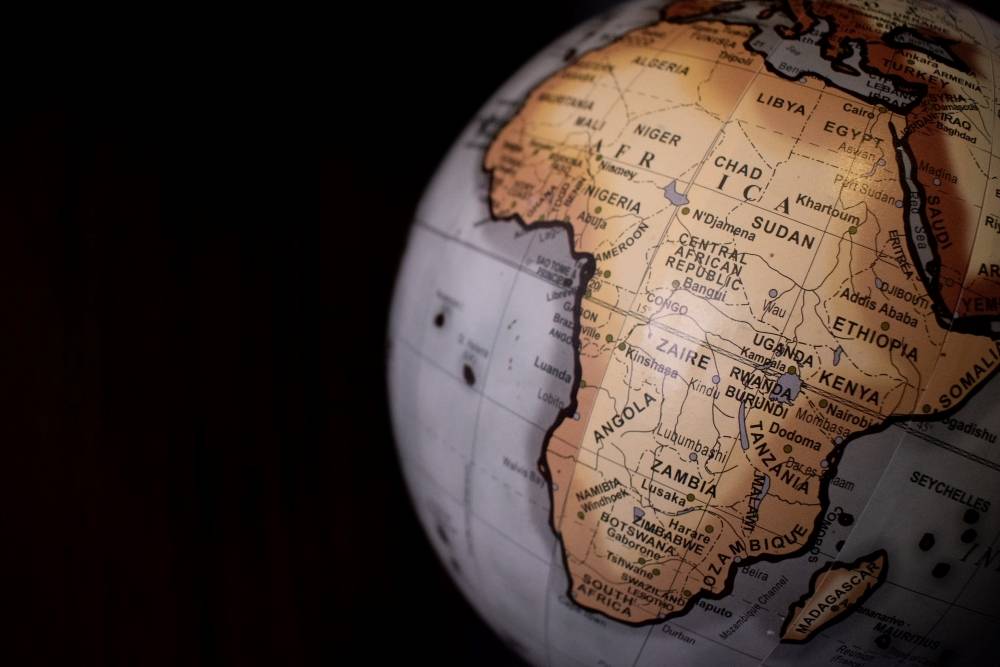France, in recent years, emerges as the biggest loser in Africa, not only due to its failing policies but also due to the intensification of international tensions.
How have France's options in Africa become so limited? What specific responsibility does President Emmanuel Macron bear in this current situation? Between recent military coups in West Africa, undermining the strongholds of the former colonial power, and historically tense relations with Algeria and the recent cooling with Morocco, France's African stakes are complex and strategically delicate.
In 2013, François Hollande initiated "Operation Serval," deploying 5,100 French soldiers to counter rebel movements, especially jihadist groups, in the Sahel region, encompassing Mali, Burkina Faso, Niger, Chad, and Mauritania. The following year, the operation was renamed "Barkhane" (symbolizing a crescent-shaped sand dune blowing in the wind), indicating the extended commitment of this mission.
This French military deployment in the Sahel, following the fall of Muammar Gaddafi's regime in Libya in 2011, supported by France under Nicolas Sarkozy's presidency and continued by Hollande, was a direct consequence of the Libyan chaos. The ensuing destabilization paved the way for jihadist organizations, allowing entities linked to Al-Qaeda and the Islamic State, after 2014, to infiltrate neighboring countries, particularly Mali.
While French forces achieved tactical successes in supporting the government of former President Ibrahim Boubacar Keïta to contain rebels at the gates of Bamako, completely eradicating these groups remains a challenge. These groups, bolstered by jihadists fleeing Syria and Iraq after 2019, following the fall of ISIS's "caliphate," entrenched themselves in the border triangle between Mali, Niger, and Burkina Faso, defying the French and regional military presence.
Paris proposed to Ibrahim Keïta the idea of engaging in talks with certain non-jihadist, more locally focused rebel factions. This suggestion faced categorical rejection from the Malian armed forces, triggering the first military coup followed by a second nine months later. These events plunged relations with France into a spiral of tension.
Taking a cue from the Malian experience, army captain Ibrahim Traoré orchestrated a coup in Burkina Faso against Colonel Paul-Henri Damiba's regime, considered a staunch ally of France. Following this coup, Traoré launched a hostile campaign against French presence, laying the groundwork for a geopolitical conflict between France and Russia in the Sahel region.
Mali turned to Russian security company "Wagner" mercenaries, led by Yevgeny Prigozhin, as an alternative to French forces. Colonel Assimi Goïta, leading the coup, ordered these forces to leave the country, marking a serious setback for French policy in the region since the start of "Operation Barkhane."
This development forced French President Emmanuel Macron to reassess the operation, considering a gradual reduction of French troops and their redeployment to Niger and Chad.
With the escalation of the Russian-Ukrainian conflict in February 2022, international tensions intensified in several world regions, including the Sahel. France suffered another setback following the coup orchestrated by Niger's National Guard chief, General Abdoul Rahmane Tani, last July against President Mahamadou Bazoum, a close ally. This coup shook West Africa, prompting ECOWAS to warn the putschists in Niamey to return to their barracks or face military intervention to restore Mahamadou Bazoum to power.
However, the United States adopted a more measured stance, reluctant to take military action for fear it might divert attention from the Russian-Ukrainian crisis, especially as the war in Sudan between the army and Rapid Support Forces had erupted just months before.
After the coup, relations between the new authorities and Paris deteriorated, leading to Niamey's demand to end the French military presence in Niger. Notably, 1,500 French soldiers were still deployed in this country until the coup. The United States, with a base housing about a thousand American soldiers, adopted a more pragmatic policy towards the putschists, maintaining contacts while privately calling for a return to a civilian government.
Just two days ago, General Tani surprisingly announced the complete severance of security partnerships with the European Union. This announcement aligns with the arrival in Niamey of a Russian military delegation led by Younous Bekhriyev, the Deputy Minister of Defense.
This decision comes at a time when Russia, following a conflict between the former leader of the "Wagner Group," Evgueni Prigojine, and the Russian government last June, has officially decided to deepen its relations with African nations formerly reliant on "Wagner" forces. A strategic shift that extends from Mali to the Central African Republic, among others.
The current strengthening of Russian influence in the Sahel coincides with recent announcements by Mali, Niger, and Burkina Faso to consider forming a confederal union. These developments occur amidst growing hostility towards France in its former colonies, exacerbated by the recent overthrow in Gabon of the Bongo family's regime, in power for half a century, causing further losses for France in West Africa.
But what has sparked such hostility towards France, particularly in the past three years? It seems to stem from an African awakening, particularly among the youth in former French colonies, realizing that France never truly left the countries it declared independent in the 1950s and 1960s. It has maintained economic and political influence by supporting leaders installed in these nations, offering them full support in exchange for access to resources like gold, diamonds, uranium, and oil. France has entangled the economies of its former colonies with its own, with seven countries still using the CFA franc tied to the euro, the currency of reference in France and most of the European Union.
France has supported some of the most repressive regimes in these nations, often overlooking the authoritarian and corrupt nature of these leaders. For instance, Paris backed the coup in Chad by Colonel Mohamed Idriss Déby two years ago following the assassination of his father, Idriss Déby, on the frontlines. Why did Macron support a "family" coup in this country while not accepting coups in neighboring nations?
Upon taking office in 2017, Macron promised to break from the era of "Françafrique." However, he has not kept this promise and continued to exercise paternalistic and hegemonic policies towards African nations. This policy has also caused tensions with Algeria and Morocco, going as far as Rabat's refusal of French aid following an earthquake in Morocco last September.
According to Bakary Sambe, director of the Timbuktu Institute in Dakar, "Macron's stubbornness and rhetoric reinforce the perception of a failing French neocolonial policy on this front."
For Antoine Glaser, co-author of "Macron's African Trap," "Macron's increasingly undiplomatic attitude reveals great frustration. It's clear that he's at a dead end, and France is now trapped in the Sahel."
In this context, Russia's capitalization on animosity towards France to strengthen its relations with African countries, seeking their support in a global confrontation with the West, is natural. Moscow is rewarding African nations that abstained from taking a stand in the Ukrainian conflict or joining sanctions against Russia, generously offering wheat to needy African nations. This generosity is accompanied by a desire to strengthen trade and military ties. This strategy is particularly visible in Algeria, Egypt, and South Africa, where special relations are established with the Kremlin.
France, in recent years, emerges as the biggest loser in Africa, not only due to its failing policies but also due to the intensification of international tensions. This is notably evident through the G7's push for policies hostile to Chinese and Russian interests on the continent. U.S. officials are urging African leaders that Chinese loans to Africa will become a heavy burden on these nations in the future.
Please post your comments on:
[email protected]
 Politics
Politics








